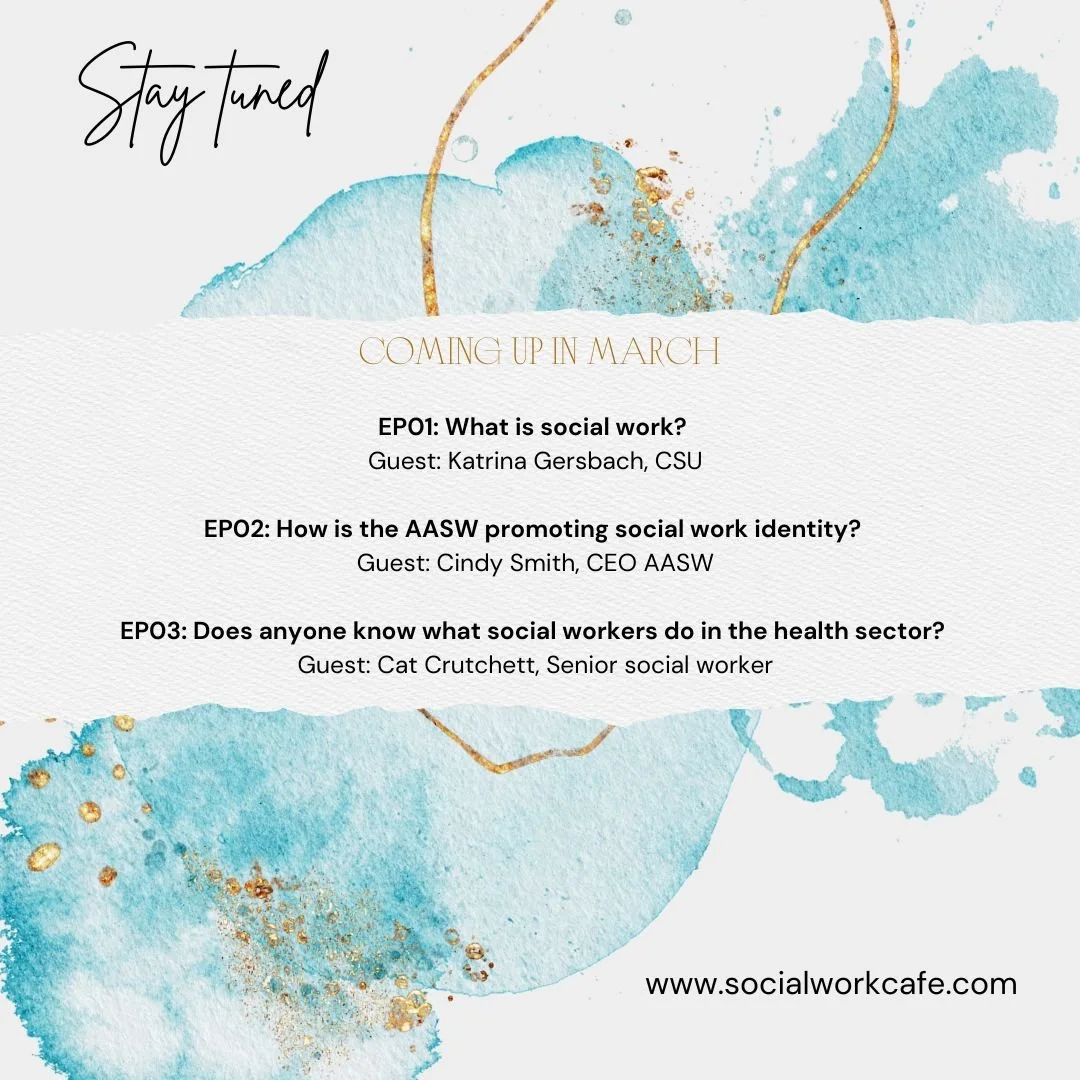Welcome to the launch of the Social Work Café
Hello there!
For those who don’t know me, I am Bernadette Moorhead, aka Dr B, an Australian social work educator at Charles Sturt University (CSU).
Welcome to the launch of my very first podcast and blog, the Social Work Café.
The podcast is a space for coffee and conversation that will help us learn more about social work while trying to keep things light-hearted (of course, all drinks are welcome).
Each episode will be complemented with a blog post to share my highlights.
I promise to try and not be the cliché academic who rambles.
So why on earth did I decide to start a podcast?
Well, according to some random dude on the internet, every millennial has a podcast, so here’s my attempt.
Honestly, though, I’ve been an educator since 2010, and over that period I have had the honour of talking with so many wonderful social workers.
Last year I thought, why not record those conversations and share them with you?
My other main reason for getting out of bed in the morning (besides my eternally hungry cat screaming at me) is coffee.
From this, my devious plan to combine my passions into an educational series was set in motion.
When I did my PhD on experiences of professional identity, I got to spend a whole year talking with newly qualified social workers.
Many of their stories have stayed with me and have had an enduring impact on how I lecture and research.
One story that laid the foundations for this podcast comes from Claire (a pseudonym).
In one of our interviews, she talked about working on an acute mental health ward with a client experiencing a psychotic episode.
During their conversation, the client turned to her and asked, "Well, what is social work anyway?"
To her surprise and dismay, Claire struggled to provide a coherent answer to the question, and felt unsettled by her response.
She left the conversation wondering why that was the case.
We both reflected on how educators, including myself, often talk about social work being difficult to define because we are so diverse.
We agreed that that was perhaps not particularly helpful when trying to explain social work to the public.
That conversation became the impetus for Claire to work on defining and communicating social work more clearly to others (spoiler alert: she nailed it).
When I went back to teaching, I took that conversation with me and designed a learning activity for social work students near the end of their studies.
I tell them Claire’s story and ask them to work in small groups to come up with a concise definition of social work that does NOT contain any academic or professional jargon.
Not surprisingly, students find this to be a difficult task.
They are often tempted to throw in lovely words like self-determination, agents of change, empowerment, and liberation.
These are all great words that reflect the definitions in our codes of ethics and our shared social work language, but does the public really understand what we mean?
I recently went onto the new artificial intelligence tool ChatGPT and asked it the following: Provide a one sentence definition of social work without jargon that would make sense to a 10-year-old child.
It gave the following:
Social work is a job where people help families and individuals who are struggling with problems in their lives and try to make things better for them.
Hmm, an interesting response.
I think it would make sense to members of the public, including 10-year olds.
I would replace the word “job” with “profession” at the very least to clarify our overall status.
I would also try to clarify our commitment to social change, so that the definition balances the psychological and socio-political factors that influence people’s lives.
What do you think?
Are there any changes you would make to this definition?
With all of that in mind, I think it is time to extend this question to a wider audience of social workers.
As such, season one of the podcast will explore that question: what is social work?
I have a whole range of fantastic conversations lined up for you, covering topics like:
· Social work practice frameworks
· Feedback-informed treatment
· Workplace self-care
· Trauma-informed practice
· Disaster practice
· Leadership
· Social work in public libraries
· Public health and mental health
· Feminism
· Environmental social work
We’re even going to throw in some sex education!
Also, each guest will give their personal answer to that central question.
Let’s see whether they can improve on the definition given by ChatGPT and what we can learn from them.
In the final episode for this season, I will share with you my own preferred definition.
I’m happy to say that I’ve been busy these last few months recording and preparing episodes.
I am incredibly grateful for the support and advice I’ve received from colleagues, friends, and guests who have shared their wisdom and time with me.
I hope you will join me on this new journey. I’ve never done a podcast or blog before, and I look forward to seeing what comes of this new adventure.
The podcast will be available on all major listening apps.
Be sure to tap the subscribe button on your podcast app so you won’t miss an episode. It would also be great if you could share the podcast with others.
You can become a friend of the podcast, by emailing your questions and feedback to me.
The show notes for each episode will include details on how you can connect with me.
Stay tuned for the first episode on Wednesday March 1st with my dear colleague Katrina Gersbach.
We’re going to kick this series off by unpacking the central question of season one—what is social work?
Talk soon.
Dr. B


